 For this week’s blog I’d like to spend some time looking at the upsides of being an Indie author, of which there are far more than you may think. As Indies, we are all aware of the downsides. I may devote a blog to them in the future, but this week I’m trying to stay positive, so I won’t be mentioning them other than to acknowledge that they exist. But those negatives colour our thinking about who we are, what we are and what we are capable of achieving if we do a bit of research and are prepared to knuckle down and do the work. I’m not talking about the work of writing a novel. You have already done that, or you wouldn’t be thinking about publishing. 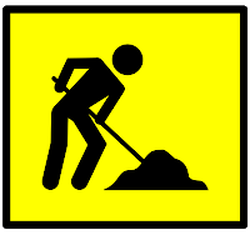 No, I’m talking about the work of being a self-publisher. It is a job in itself and it requires all the disciplines of any other type of job if you want to succeed. There is no nepotism in self-publishing, because there is no daddy (or mummy) figure to help you up the ladder. There is just you. If you aren’t prepared to put in the work, there is no point in reading blogs (or books) about self-publishing because you won’t make it. There is no such thing as “luck” when it comes to selling books (there is no such thing as luck anyway, IMHO). There is only hard work and dedication. Just like any other job, you either have to put in the hard yards, or you have to sleep with the boss, which is a bit difficult if you are the boss. So, what are these upsides? 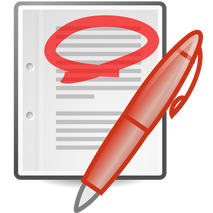 1. You have complete editorial control. Any editor working for a publisher is expected to produce a sure fire winner at the end of the editorial process. That means that if they don’t like the way you tell your story, they will want you to change it. But think about that for a moment. Your book is like your child. Would you change your child if a complete stranger told you it was ugly? No, of course you wouldn’t. The same applies to your book. You don’t have to change it if you don’t want to. There is a caveat to that. If your beta readers (you do have beta readers, don’t you?) tell you your story is ugly, it is worth listening to them. But you are still in control of how your story is told. 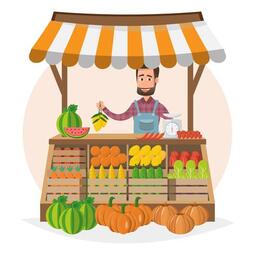 2. You can get your book to market far quicker. There is no doubt that mainstream publishing is a slow process. From acceptance of a submission to launch date of the book can be as much as two years, depending on the publisher. There are many reasons for this, but the main one is all the boxes that have to be ticked on the Gantt chart to get it to publication day. But for the Indie, once they have decided that the latest draft is as good as the book is ever going to get, they can launch their book the same day, if they put their mind to it. Realistically I would suggest a two to three week timeline, especially if you need a cover to be designed, but the timeline is entirely in your hands.  3. The Indie can set their own price for the book. That means the Indie can get very competitive in their pricing. Not for them the £19.99 (or more) hard backs, followed by the £13.99 paperback and the £9.99 ebook.. Indies don’t have to have a hard copy version at all if they don’t want to – though there is still a large market for paperbacks. Competitive pricing allows a lot of Indie authors to establish a readership amongst people who don’t have much of a budget for books. That earns them reviews and that in turn stimulates more sales. And without all the overheads of a big publishing house, the Indie can actually earn larger royalties per book than many mainstream published authors. Some of our authors are now earning 4 digit royalties per month and that’s after we at Selfishgenie take our share. While we may not be true Indies, we operate on the same cost base as an Indie which means our authors’ earnings are comparable to those of any Indie author who does it all themselves.* 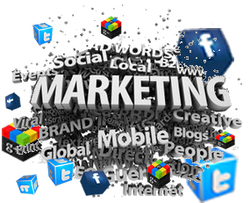 4. The Indie can control their own marketing. If book sales are flagging, the Indie can give them a boost by running promotions and advertising campaigns. Most mainstream publishers lose interest in a book after about 12 months, because they have moved on to new projects, leaving their authors languishing in the doldrums with ever decreasing sales. Mainstream Publishers will deny that, of course, but think about it for a moment. How often do you see “sponsored ads” on Amazon for a mainstream published book that is more than a year old? I’ll give you a clue – you won’t. Book stores have removed the book from the shelf to make room for new releases. The mainstream publishers rely on Amazon’s algorithms to keep their back catalogue in front of readers, based on reading preferences and previous purchases. But if the Indie’s books sell a few copies, they will appear in front of readers in exactly the same way, because the algorithms work for the Indie just the same way as they work for mainstream publishers. A mainstream published author can’t tell their publisher to do more marketing, but an Indie can do it for themselves. 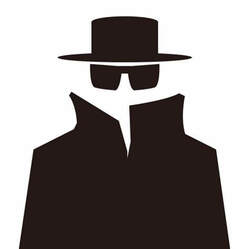 5. You don’t have to pay an agent. Agents are only necessary to open the door to a mainstream publishing deal. But they want a big share of your royalties for doing that. It used to be around 10%. Now it is closer to 20% and can be higher for the most successful agents. And it comes from the author’s royalties. The publisher doesn’t pay the agent a penny. I’m not saying agents don’t earn their money, but I would prefer to see a ceiling placed on their earnings from a book, rather than it being a lifetime commitment. We’re talking about a business relationship here, not a marriage!  6. You get all the credit. If your Indie book is a success, no one else can claim the credit. No agent can say “I discovered that author”. No editor can say “I made that book what it is”. No publisher can say “Without me, you would never have heard of this author”. And there are a lot of highly successful Indie authors who can make their claims for success. Here are a few names: L J Ross, Mark Dawson, Rapi Kaur, Rachel Abbott, Phillip Goodrich, Christopher Paolini, Maria E Cantu Alegre and Howard of Warwick (pen name), Between them those Indies have sold millions of copies of their books – for L J Ross alone it is 7 million. BTW, while researching that list I actually bought one of the author's books, because I read the genre in which the author writes and had never come across him before. I was already familiar with Mark Dawson, because I have read several of his books. I’m not going to pretend that being an Indie author is easy. If it was, that list of successful Indie authors would be a lot longer (actually, it is. I just stopped after 8 names because I had no more time for research). But my point is that if you are an Indie, it doesn’t mean you can’t become a big name. If you have the right book and you market it the right way, it will sell. So, all you Indies that have read this far, give yourself a big pat on the back and, the next time you are feeling frustrated about not being signed by a big publishing house, remember this list of upsides. Success really is within your reach. You just have to grasp it. I have only listed 6 positives, but that is because I don’t have time to write about more (I do have a business to run too). Please feel free to share your positives in our comments section below. * If you want to be part of this success story, you can find out how on our “Contacts” page. If you have enjoyed this blog, or found it informative, then make sure you don’t miss future editions. Just click on the button below to sign up for our newsletter. We’ll even send you a free ebook for doing so.
0 Comments
Leave a Reply. |
AuthorThis blog is compiled and curated by the Selfishgenie publishing team. Archives
June 2025
|
 RSS Feed
RSS Feed